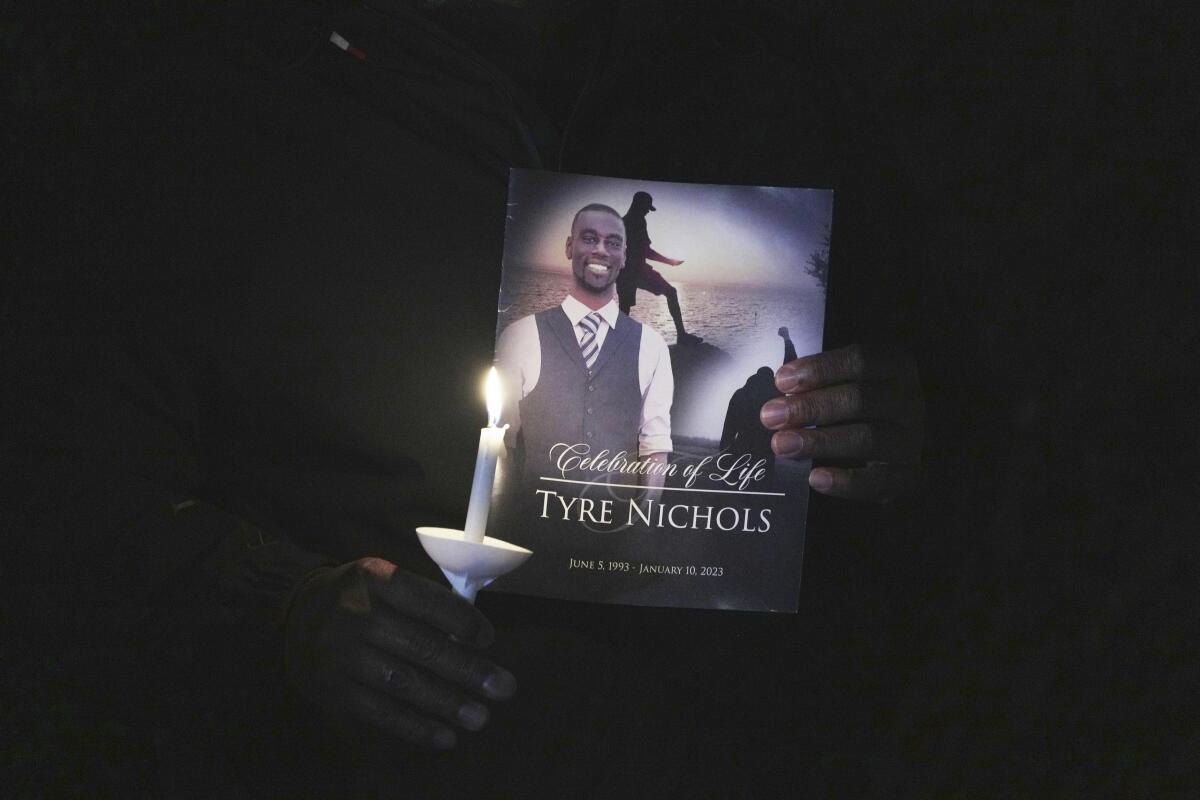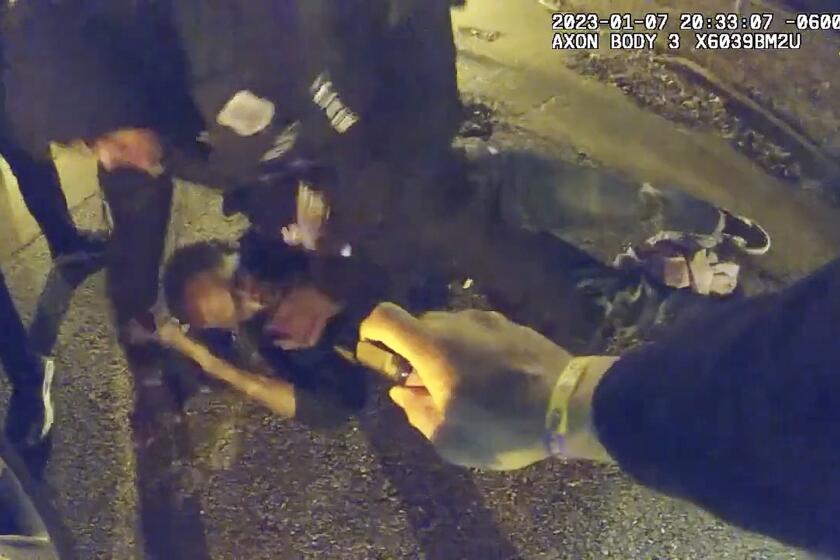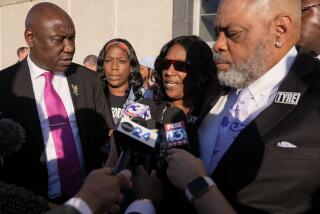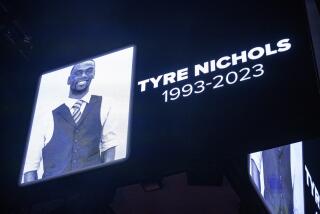Memphis judge postpones cops’ state trial in Tyre Nichols death until end of federal case

MEMPHIS, Tenn. — A judge on Friday indefinitely postponed the state court trial of four former Memphis officers charged with second-degree murder in the fatal beating of Tyre Nichols until after the conclusion of a federal court trial on civil rights violations.
Criminal Court Judge James Jones Jr. made the ruling after defense attorneys filed a motion asking him to remove the state trial from the calendar to avoid “parallel prosecutions” that could hinder the officers’ rights to defend themselves in both cases.
The move comes after the trial for the officers on federal charges in Nichols’ beating death was postponed from May 6 to Sept. 9 to give defense lawyers for more time to prepare their case. That preparation, they say, includes reviewing 800 gigabytes of video, documents and other evidence given to them by federal prosecutors.
Nichols died in a hospital on Jan. 10, 2023, three days after he was kicked, punched and hit with a police baton after a traffic stop. His death sparked outrage and calls for police reforms in Memphis and nationally.
Police video showed five officers beating Nichols as he yelled for his mother just steps from his house. Video also showed the officers milling about and talking with each other as Nichols sat on the ground, struggling with his injuries.
The brutality shown in graphic videos of Memphis police officers beating Tyre Nichols was roundly condemned by law enforcement use-of-force experts as indefensible and “sadistic.”
An autopsy report showed he died from blows to the head, and that the manner of death was homicide. The report described brain injuries, cuts and bruises to Nichols’ head and other parts of his body.
Nichols was Black, as are the five officers, who were all fired for violating Memphis Police Department policies. Memphis’ police chief has said that the department couldn’t substantiate any reason for the traffic stop.
Tadarrius Bean, Demetrius Haley, Emmitt Martin, Desmond Mills Jr. and Justin Smith were charged with second-degree murder and other offenses in state court. They also have been charged with federal civil rights violations related to the use of excessive force and obstructing justice.
Mills pleaded guilty Nov. 2 to federal charges of excessive force and obstruction of justice and agreed to cooperate with prosecutors who recommended a 15-year prison sentence. His lawyer said he will also plead guilty in state court.
The remaining officers have pleaded not guilty to the charges in state and federal court.
Michael Stengel, the lawyer for Haley, noted during Friday’s hearing that the officers face more serious penalties if convicted in federal court compared with state court. The officers face up to life in prison for the federal charges, as opposed to 15 to 25 years in prison on the second-degree murder charges.
“Judicial economy and the ends of justice are best served by conducting the federal trial first,” the defense motion said.
Prosecutor Paul Hagerman said he agreed with postponing the state trial with no future date set, as long as all parties agreed to return to state court quickly and set a new trial date if the federal trial does not go forward.
Hagerman also said he had spoken with Nichols’ family and they were “on board” with the postponement of the state trial.
“They want justice for their son, and they’re going to see this through however long it takes,” Hagerman said. “They don’t see today as some sort of loss.”
Adrian Sainz writes for the Associated Press.
More to Read
Sign up for Essential California
The most important California stories and recommendations in your inbox every morning.
You may occasionally receive promotional content from the Los Angeles Times.











